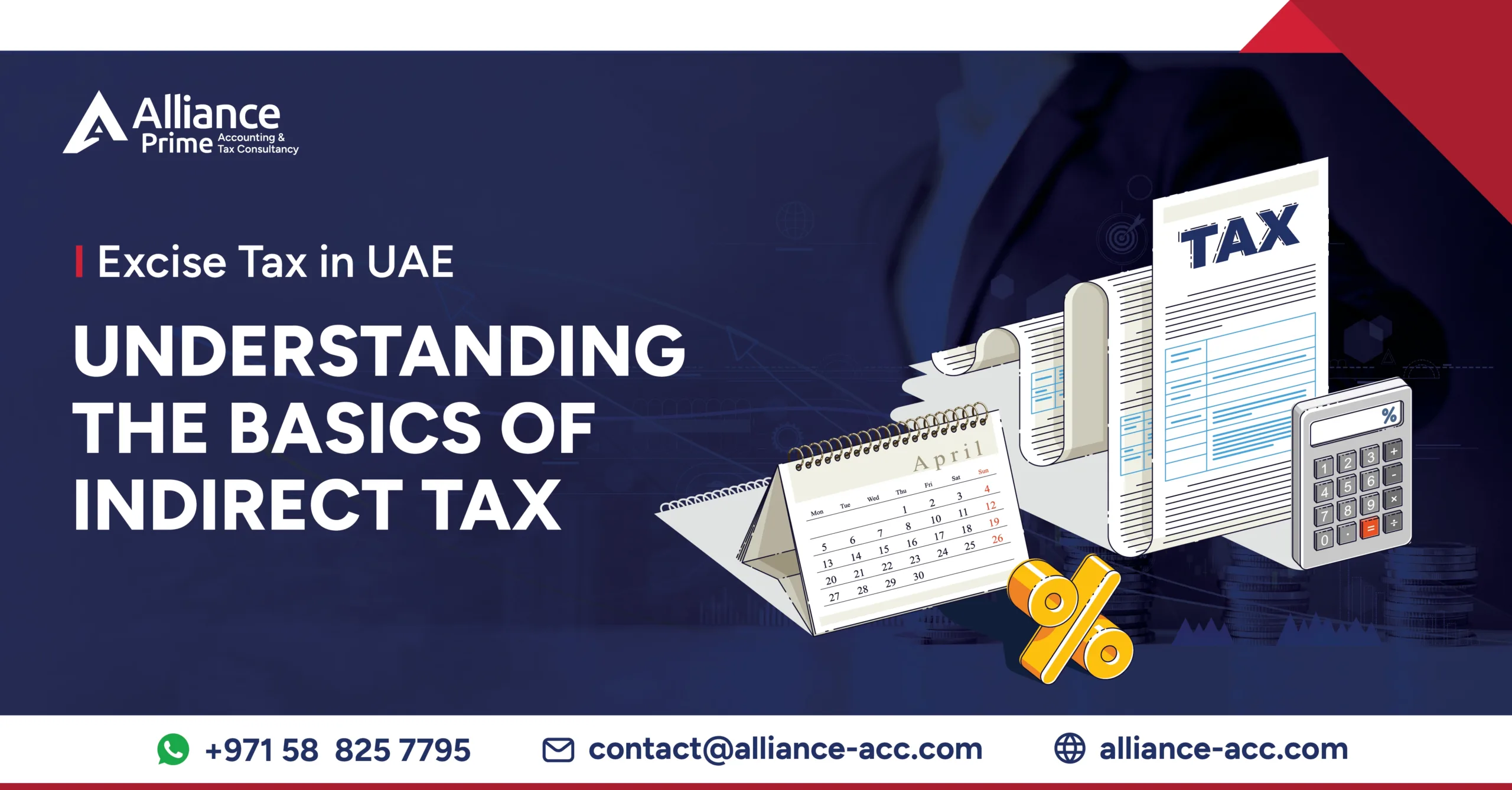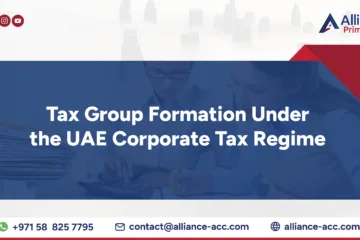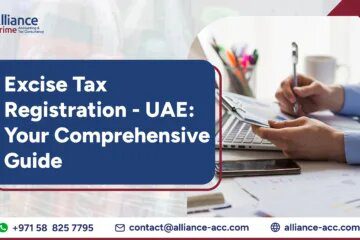In the intricate landscape of the United Arab Emirates (UAE), businesses encounter various challenges, with tax compliance standing out as a paramount concern. Amidst the dynamic tax framework, two significant pillars, Value-Added Tax (VAT) and Excise Tax in UAE, play a pivotal role. This article delves into the realm of Excise Tax, shedding light on its fundamentals and exploring how businesses can benefit from the expertise of excise tax consultants, with a focus on Alliance Prime.
Understanding Indirect Taxes in the UAE
Before delving into the specifics of Excise Tax, it is essential to grasp the broader context of indirect taxes in the UAE. VAT, introduced in 2018, is a consumption-based tax applied to most goods and services. It is a responsibility that businesses bear throughout the supply chain, from charging and collecting to paying it to the Federal Tax Authority (FTA). The VAT landscape encompasses standard rates, zero rates, exemptions, and goods and services outside the VAT scope.
Excise Tax in UAE, implemented in 2017 and expanded in 2019, is another vital component of the UAE’s indirect taxation system. Often referred to as a “sin tax,” Excise Tax is levied on specific goods considered harmful to human health or the environment. These goods include tobacco and tobacco products, electronic smoking devices, energy drinks, carbonated drinks, and sweetened drinks.
Products Applicable for Excise Tax in UAE
Excise tax is a form of indirect tax levied on specific goods, typically those that are harmful to human health or the environment. Excise tax was introduced in the UAE in 2017, and it is currently applicable to the following good. The scope of Excise Tax includes, but is not limited to:
- Tobacco and Tobacco Products: All items listed within Schedule 24 of the GCC Common Customs Tariff fall under the purview of Excise Tax.
- Electronic Smoking Devices and Tools: Since 2019, Excise Tax is applicable to electronic smoking devices and the liquids used in such devices.
- Energy Drinks: Any beverage marketed or sold as an energy drink, containing stimulant substances such as caffeine, taurine, ginseng, and guarana, is subject to a 100% tax.
- Carbonated Drinks: All aerated beverages, except for unflavored aerated water, attract a 50% tax.
- Sweetened Drinks: Introduced in 2019, sweetened drinks are subject to a 50% tax.
Businesses Obligated to Register for Excise Tax
Businesses engaging in the import, production, or stockpiling of excise goods, as well as overseeing excise warehouses or designated zones, are required to register for Excise Tax. Unlike VAT, there is no threshold for Excise Tax, necessitating registration for all entities involved with excise products.
Excise Tax Registration Process
Registering for Excise Tax in UAE is a crucial step for businesses, and the process is facilitated through the e-services section on the FTA website. The deadline for registration is imperative, and businesses must ensure compliance with excise tax regulations to avoid penalties.
The Role of Excise Tax Consultants
Given the complexity of excise tax regulations, businesses can benefit significantly from the services of excise tax consultants. Alliance Prime, a renowned accounting and tax consultancy based in the UAE, offers comprehensive excise tax solutions. Their services include excise tax registration, compliance management, and expert guidance to navigate the nuances of excise tax laws.
Excise Tax – UAE: A Closer Look
Excise tax is an indirect tax imposed on the sale of specific commodities. These goods are taxable if they are imported into the UAE, manufactured in the UAE, or stockpiled in the UAE. The primary purpose of the excise tax is to reduce the consumption of those particular goods to restrict unhealthy practices. In certain scenarios, goods will be physically labeled to show that the excise tax has already been paid to the government.
How Excise Tax in UAE Works
Excise tax in UAE is levied on the importer, producer, or stockpiler of excise goods in the UAE. The tax is calculated based on the value of the goods at the time of release for consumption.
There are two ways to pay excise tax in the UAE:
- Monthly payment: Excise taxpayers can register for monthly payments with the Federal Tax Authority (FTA). Under this scheme, taxpayers are required to file a monthly excise tax return and pay the tax due within 15 days of the end of the tax period.
- Quarterly payment: Excise taxpayers can also register for quarterly payments with the FTA. Under this scheme, taxpayers are required to file a quarterly excise tax return and pay the tax due within 30 days of the end of the tax period.
Excise Tax Registration Services
Excise Tax Registration Services are integral to ensuring that businesses maintain compliance with taxation laws, which undergo frequent changes and revisions. Companies like Alliance Prime provide these services to help businesses cope with changes, revisions, additions, and removal of tariffs. The UAE government introduced Excise Tax in 2017 on tobacco products, carbonated drinks, and sport or energy drinks. Two years later, in 2019, the government extended Excise Tax to e-cigarettes, soft drinks, and e-liquids. In effect, the Emirati government charges Excise Tax on goods that harm human health and the environment.
Excise Tax in UAE and Its Impact on Businesses
Businesses involved in the import of excise goods into the UAE, the production of excise goods released for consumption, the stockpiling of excise goods, or overseeing an excise warehouse have a responsibility to register for Excise Tax. The Federal Tax Authority (FTA) provides extensive support and guidance to assist businesses in fulfilling their compliance obligations. Failure to comply with Excise Tax regulations can result in audits and penalties imposed by the FTA.
Conclusion
In conclusion, Excise Tax in UAE is a critical aspect of the indirect tax landscape. Businesses must stay informed, comply with regulations, and seek professional assistance to ensure a seamless experience. Alliance Prime stands as a reliable partner, guiding businesses through the complexities of Excise Tax and contributing to their overall success. For more information and to enhance your Excise Tax compliance, visit Alliance Prime’s website: https://alliance-acc.com.




